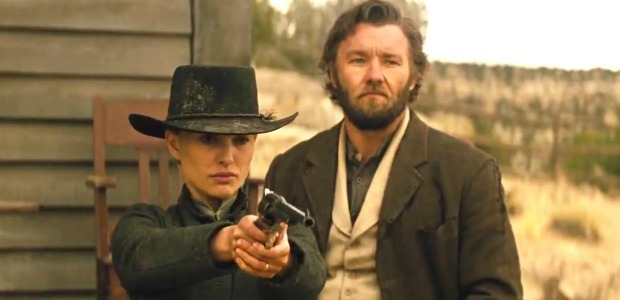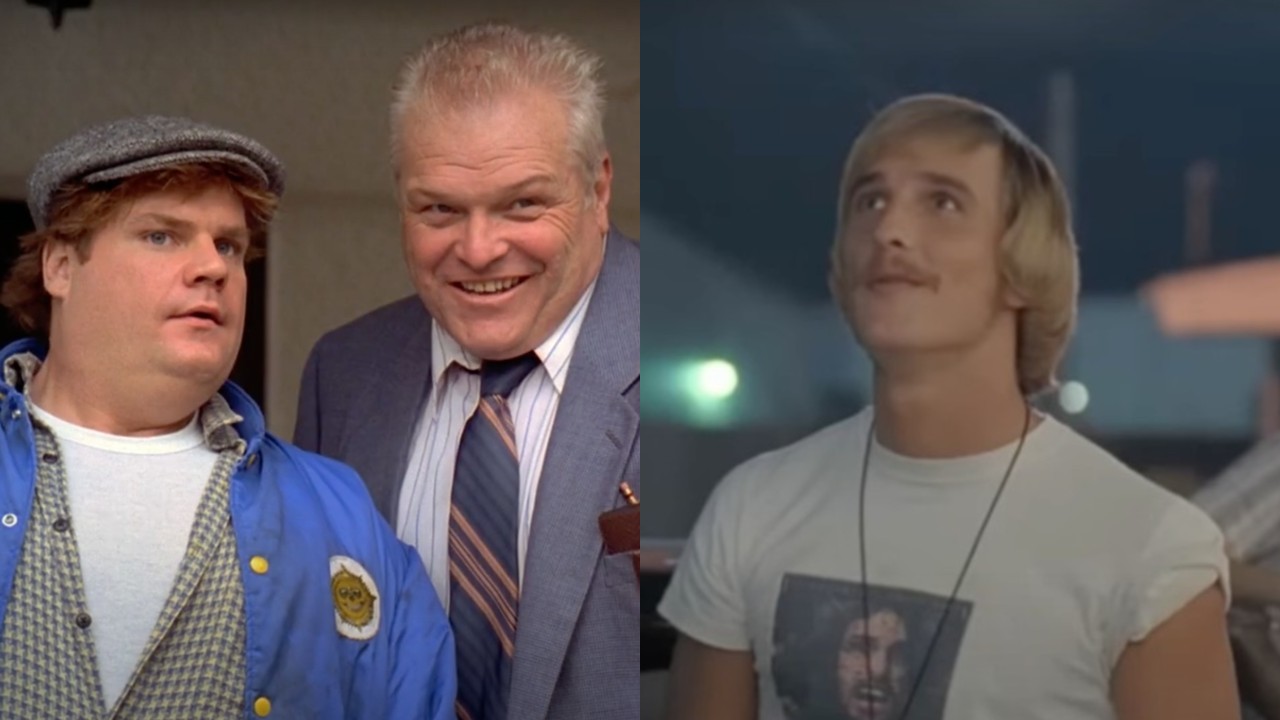There’s something innately cinematic about watching a Western. When handled correctly, its tales, characters, and locations just seem to perfectly translate to the big screen. So the fact that Jane Got A Gun deploys numerous traits of the genre – a retired gunslinger, simple life disrupted by violence, heroes and villains hellbent on revenge - means that it’s continuously appealing.
Its sprightly opening – which sees Natalie Portman’s Jane Hammond confronted with the bullet-ridden body of her husband, Bill (Noah Emmerich), before then being informed that the men who did this to him are on their way to find her – glistens with wide shots of the barren, sunlit landscape that immediately pull you in. Director Gavin O’Connor (Warrior) doesn’t overcomplicate these shots, either. There’s a naturalism to his and cinematographer Mandy Walker’s approach that results in the sun seeming brutally bright and the darkness getting lost in the shadows, while the dirt and dust of the desert still swirl in the air.
O’Connor also allows the sight of Natalie Portman gallantly riding a horse through the desert to generate an energy and intrigue, which still seems tranquil because of its calm locale. Jane Got A Gun’s simple plot then begins to build up around its truly terrific ensemble, each of whom look completely suited to the genre.
Noah Emmerich (The Truman Show, Little Children, The Americans) plays his usual brand of male, one that’s obviously masculine but just not strong or smart enough to mix it up with the main heroes and villains of the piece. Yet, his beaten and battered brand of masculinity instantly fits into the film. Meanwhile, Joel Edgerton is brooding and mysterious as the lovelorn and war-torn Dan Frost. But, you still instantly get the impression that he’s dependable and will do the right thing. In fact, the only part of the ensemble that seems a little out of the place is Natalie Portman in the lead, with one character even describing Jane as “significantly more attractive” than her beau. That remark that can be extended to the rest of the cast, as well, and it’s hard to overlook.
Jane Got A Gun doesn’t try to hide Portman’s obvious beauty, something that it does do with the usually attractive but now-decrepit Rodrigo Santoro. Instead, they use her attractiveness to highlight just how much of an anomaly Jane is, and how sought after she’d be in this world. It’s to Natalie Portman’s eternal credit that she doesn’t reduce Jane to a bumbling mess or a cliché. Instead, she’s stern, strong, and wary, yet still feminine.
Unfortunately, Jane Got A Gun’s spry opening soon starts to derail. Rapidly. It becomes more and more reliant on flashbacks to catch us up with the history of its characters. While these sequences don’t immediately hinder the film, the middle completely sags as it repeatedly goes back and forth in time. On at least one occasion, the flashback seems completely superfluous, while it fails to build upon its initial peril and urgency, which soon becomes an afterthought.
The lack of screen-time for Ewan McGregor’s villainous Colin McGann, meanwhile, is a huge waste, as more scenes featuring the Scot (who flourishes when he is on screen), would have helped cure these issues. That's despite the fact that his teeth are blindingly white for some inexplicable reason. In fact, as Edgerton and Portman’s characters prepare her home for the impending attack of the seldom-seen villains, Jane Got A Gun begins to resemble an elongated homage to a Home Alone montage. Just without the fun or vigor.
The development problems that blighted Jane Got A Gun’s production are the obvious reasons for its sluggishness. But that’s little comfort as you’re watching, and you immediately wish that some of the slack either had to be edited out or re-written, so its inclusion wasn’t so detrimental to the rhythm of the film.
With the film threatening to plod into a tepid final act, Jane Got A Gun is suddenly rejuvenated by a powerful revelation that then propels it into a rousing finale. Meanwhile, O’Connor’s use of colors subtly create an edge and tension that had all but evaporated, and the leading duo’s Kevin McAllister style antics soon start to reap benefits.
It’s not completely enough to forgive Jane for the foibles that made it dovetail. However, it’s too sentimental and lacks the ambition or poetry to match the greats of the genre. But you’ll ultimately have been captivated and entertained enough to conclude that Jane Got A Gun was more bullet than blank.












